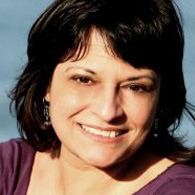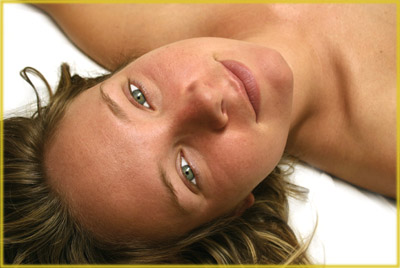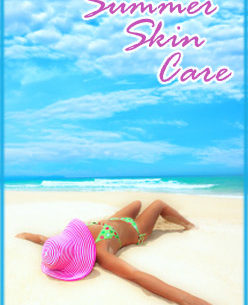
Are you avoiding the sun for fear of getting skin cancer? If yes, then you’re not alone. I’ve done a lot of research and blogged a lot about skin cancer and sun safety because there seems to be a lot of confusion and misinformation on the subject that is affecting the behavior and choices of most people –though not necessarily in a good way.
The media, dermatologists, and some doctors have been hammering in the message that any exposure to the sun is unsafe and so you shouldn’t ever go out in the sun without some form of protection or you risk getting skin cancer. With all the new evidence coming to light about chemical sunscreens, our increased understanding of the difference between UVA and UVB radiation, and the role of naturally occurring Vitamin D in reducing our risk for a number of different types of cancer, this is not only a gross exaggeration, but frankly, irresponsible.
As long as the media continues to be the mouthpiece for industry, and the FDA drags its feet for fear of dealing industry a blow in the form of stricter regulations, then confusion will reign and consumers will probably continue to err on the side of what they are led (or misled as the case may be) to believe is “safe” or “safer.” So why are there so few voices out there touting the benefits of the sun and the importance of finding a balance between getting enough exposure, without putting your self at risk?
The cynic in me would say there’s no money to be made by encouraging people to get some sun, but there is a ton of money to be made from scaring people into believing they should wear sunscreen as a second skin –after all, the companies that make sunscreen products depend on this fear for their livelihood and future prosperity!
Fortunately, there are a few doctors and researchers out there providing a voice of reason on this subject. One key proponent of responsible sun exposure is Michael F. Holick, PhD, MD, who authored a book called “The UV Advantage.” In his book Holick cites more than 120 peer-reviewed studies that demonstrate moderate exposure to UV light will give the body the Vitamin D it needs without significant skin damage.
What many people may not know is that your body uses sun light to create Vitamin D — a key nutrient you need to fight a variety of diseases including diabetes, rheumatoid arthritis, high blood pressure, and some forms of cancers like breast, prostate and colon cancer. Recent studies suggest your body needs up to 1000 mg of Vitamin D per day to cut in half the potential risk for ovarian, colon, and breast cancer. Our bodies convert part of the sun’s UVB rays (the same ones that ultimately lead to sun burn) into Vitamin D. Without sun exposure, it’s hard to create sufficient amounts of this vital nutrient via diet and supplements alone.
Holick says that slathering SPF 15 sunscreen all over your body (about 1 oz) cuts its ability to make Vitamin D by 95%. That’s because all sunscreens are designed to block UVB rays, which are the ones we need to make Vitamin D.
For that reason everyone needs a little unprotected time in the sun, depending on the latitude, time of day, season, and their skin type (degree of skin pigmentation), which he covers in his book in detail. To be sure you’re getting enough sun but not too much, he recommends you estimate how long it will take you to get a mild sunburn (i.e. 20 minutes); divide that by 4 (i.e. 5 minutes). Two or three times a week, expose your face, hands, and arms, or legs, for that amount of time, then apply a broad spectrum sunscreen of at least SPF15.
With the arrival of fall and subsequently winter here in the U.S., the intensity of the sun’s rays will be much lower than they are in the summer –even during the peak hours of 10 AM to 2 PM. So don’t be afraid to let the sun shine in!
Sun exposure offers us many health benefits: it provides us with a natural high by stimulating the release of feel-good substances in the body –serotonin, dopamine, and beta-endorphins. Sunshine also suppresses hormones like melatonin that make you feel sluggish and down. And it’s your best source of Vitamin D.
The importance of Vitamin D as a vital and protective nutrient cannot be underestimated. Its role in reducing mortality rates in cancer patients is starting to make many in the medical community question the conventional wisdom about sun safety and weigh the considerable benefits of sun exposure against the potential risk of skin cancer.
In 2009, Dr. Cedric Garland of the University of San Diego School of Medicine published the results of his team’s research in the Annals of Epidemiology. The paper entitled “The Role of Vitamin D in Cancer Prevention” establishes a minimum level of Vitamin D that must be present in cancer patients’ blood in order to stop them from dying from the cancer.
In this study, researchers at the Moores Cancer Center and Department of Family and Preventive Medicine, UC San Diego used a complex computer prediction model to determine that intake of vitamin D3 and calcium would prevent 58,000 new cases of breast cancer and 49,000 new cases of colorectal cancer annually in the US and Canada. The researchers’ model also predicted that 75% of deaths from these cancers could be prevented with adequate intake of vitamin D3 and calcium. In a follow up interview on UCTV, Dr. Garland noted that a Vitamin D test to measure levels of Vitamin D in your blood could be used as an early cancer detection or screening method (i.e. low levels of Vitamin D could be a very early sign of cancer developing).
The findings of this research, and the work of Dr. Holnick indicate that moderate unprotected exposure to the sun is not only safe but also desirable and one might even conclude, necessary. Neither of these doctors is advocating that you throw away your sunscreen just yet. However, this information combined with the growing body of evidence that some sunscreen ingredients are at best ineffective at preventing skin cancer, and at worst, may actually lead to it, requires a serious re-evaluation of our relationship with the sun.











